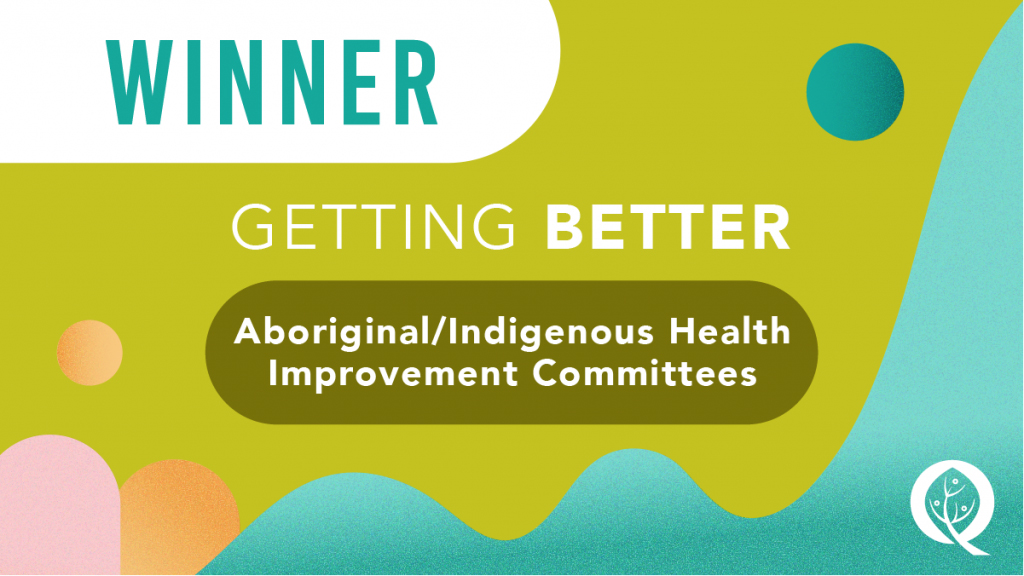- 2020
|
- Winner
|
- Returning to Health & Wellness
This award was formerly named “Getting Better”. Our Excellence in Quality category names changed in 2020 to reflect the updates to our BC Health Quality Matrix. Visit our Categories and Criteria page to find out more.
Indigenous peoples in BC have historically faced barriers to quality health care. To address these issues, nine Aboriginal/Indigenous Health Improvement Committees (A/IHICs) have brought together Northern Health and Indigenous health leaders to identify health care priorities and work together towards solutions. The result is an environment of teamwork where collaborating, understanding and trust have grown in communities throughout BC’s north.
Initiated in 2005, the A/IHICs are action-oriented groups that support health and wellness for Indigenous peoples, families and communities in northern BC. They facilitate learning about each other’s realities and opportunities while connecting grassroots organizations and individuals with health leaders and practitioners. The objectives are to build connections by providing opportunities for new and stronger relationships; increase cultural understanding between communities and sectors; and incorporate Indigenous peoples’ perspectives and experiences.
Despite limited funding – each A/IHIC receives $20,000 or less annually – the committees have improved health care experiences for Indigenous peoples through process/patient journey mapping, implementing priority issues and developing local cultural resources. They developed over 65 resources and initiatives that support increased understanding of local Indigenous communities, cultures and barriers to health care, while completing more than 25 patient journey/process maps that contribute to enhanced awareness and collaboration for addressing gaps and identifying opportunities in health care.
The mapping exercises gathered stakeholders who might not otherwise collaborate, building greater understanding, empowerment and problem-solving. An example is a mapping event held in 2018 in Dease Lake, which gathered First Nations community health staff and representatives from different sectors, including the local hospital, paramedics and RCMP. The event explored challenges in providing mental health care for youth in First Nations communities, and the broad representation was critical to its success.
The resources developed by the committees aimed to answer a simple question: “If I’m a new health practitioner coming to your community, what should I know?” The result is a variety of community-specific resources and activities that include cultural learning workshops, materials highlighting cultural practices, beliefs and health care needs, and booklets with information on First Nations communities and their distances to primary care settings.
Going beyond culturally safe health care, some resources created by the A/IHICs focus on strengthening communities in rebuilding their culture and practices. The Métis A/IHIC funding, for example, supported initiatives such as housing, post-secondary education, Indigenous skills and employment, public health disease surveillance, health and data sharing agreements and cancer resources.
The committees have addressed many challenges and remind each other to be “tough on the issues but gentle with each other,” a phrase borrowed from the work of the First Nations Health Authority. The cultural resources have shaped service delivery changes, facility design and policy changes among health care providers from various sectors, and the stories patients have told through patient journey mapping have been instrumental in making health care more welcoming to Indigenous peoples and influencing change in policy and practice.


